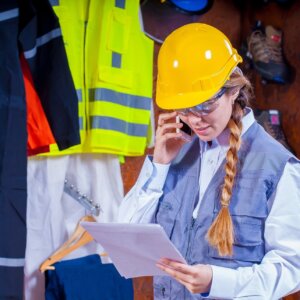VAT on commercial property: What are the rules?
Summary of Key Points on VAT and Commercial Property
| VAT Exemption: The lease or sale of most commercial properties is VAT-exempt, which benefits buyers or tenants by reducing costs. However, landlords or vendors cannot reclaim VAT on related expenses unless they opt to tax the property. | Opting to Tax: Property owners can choose to charge VAT (currently 20%) on sales or leases. This allows them to reclaim VAT on associated costs, such as refurbishments. However, this decision is irrevocable and must be carefully considered based on the target market (e.g., charities may not benefit) | Transfer of Going Concern (TOGC): If a property with tenants is sold and the buyer continues letting it without significant changes, the transaction may qualify as a TOGC. This makes the sale VAT-free, provided specific conditions are met. |
| VAT on New Properties: Properties less than three years old are subject to VAT at the standard rate. Buyers may opt to tax such properties to recover VAT on acquisition costs but must then charge VAT on future rents or sales unless TOGC conditions apply. | Mixed-Use Properties: These can complicate VAT calculations due to differing rules for residential and commercial components. Owners should seek advice to ensure compliance and optimize tax recovery. | Importance of Professional Advice: Given the complexity of VAT rules and potential penalties for non-compliance, consulting property tax specialists is essential for informed decision-making. |
VAT on commercial property is a complicated area with plenty to consider. When selling business, owners often expect the sale to be VAT free, but many are unsure what their tax requirements are. Our property accountants at Alexander & Co have shared some of the key aspects of VAT to consider when selling, purchasing or leasing a commercial property.
VAT Exemption
The lease or sale of a commercial property is usually exempt from VAT. This can be a positive thing for tenants or purchasers of the property, as they won’t have to pay VAT. Although this can be beneficial for some parties, when a landlord or vendor makes an exempt supply of a property, they cannot normally recover the VAT on all related costs, which can be substantial.
To avoid this, landlords or vendors can opt to charge VAT on a commercial property. To do this, they must notify HMRC of their wish to charge.
CONTACT OUR SPECIALIST PROPERTY TAX ADVISORS TODAY
Opt to tax commercial property
Commercial property owners have the option to charge VAT at 20% (currently the standard rate). When a landlord or vendor opts to tax property, they usually need to charge VAT on all supplies which relate to the property, therefore charging all rentals or sales. Landlords can, however, recover VAT that has been charged in relation to the property.
In the right circumstances, opting to tax can provide a real advantage, for instance, where expensive refurbishments have been required.
However, for some businesses it is not appropriate (or often, realistic) to opt to tax – many businesses simply cannot afford to recover VAT incurred on the costs. These include mainly businesses in health services and charity work. This is why it’s important to consider the market sector of potential tenants or purchasers before you make a decision.
HMRC needs to be notified in writing if you opt to tax. This decision is usually irrevocable, hence, why making the correct long-term decision is essential.
If you are weighing up your options and are unsure of whether to charge VAT our property advisors can assist you and are happy to provide a free quote to review your circumstances. You can also check our guide on property tax to find out additional information.





